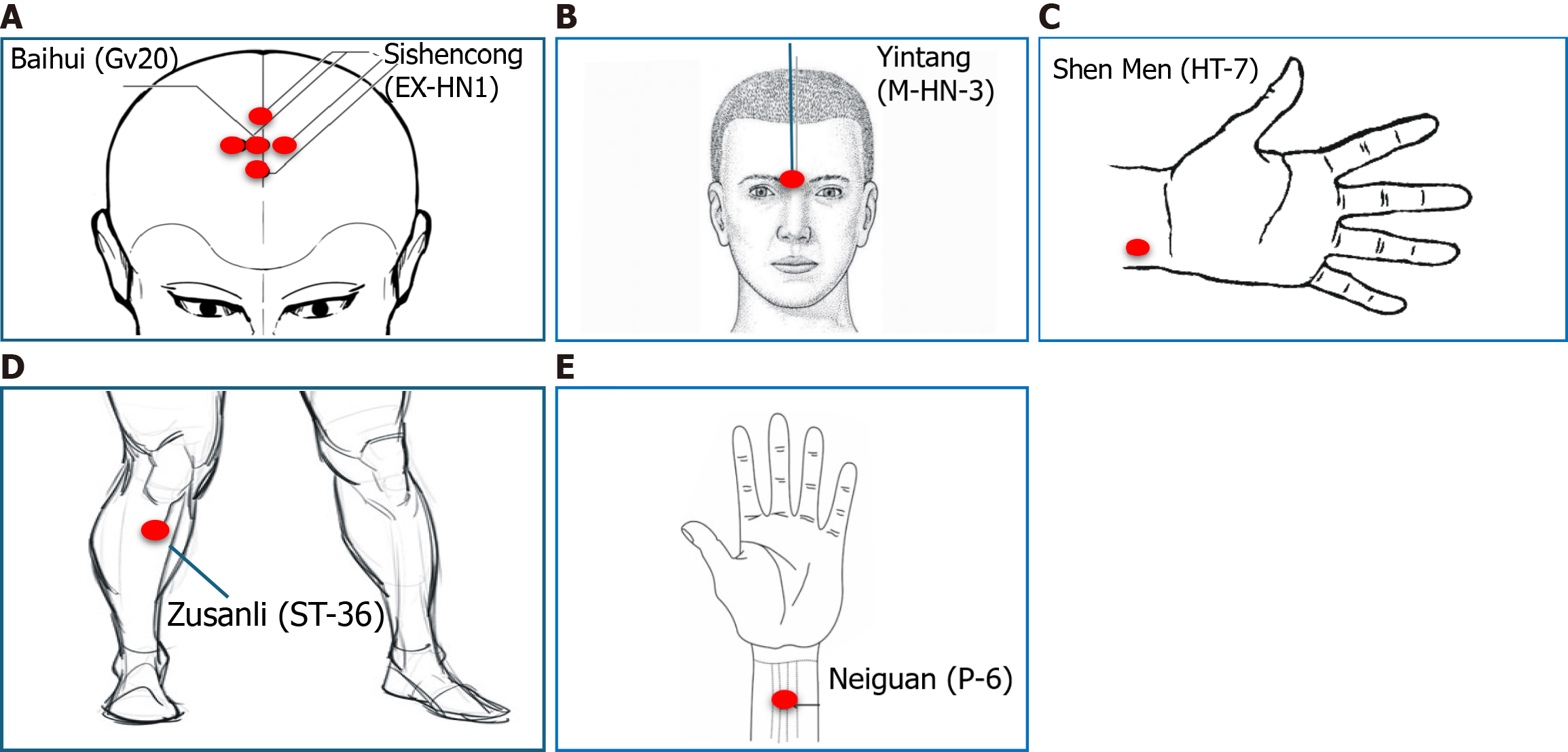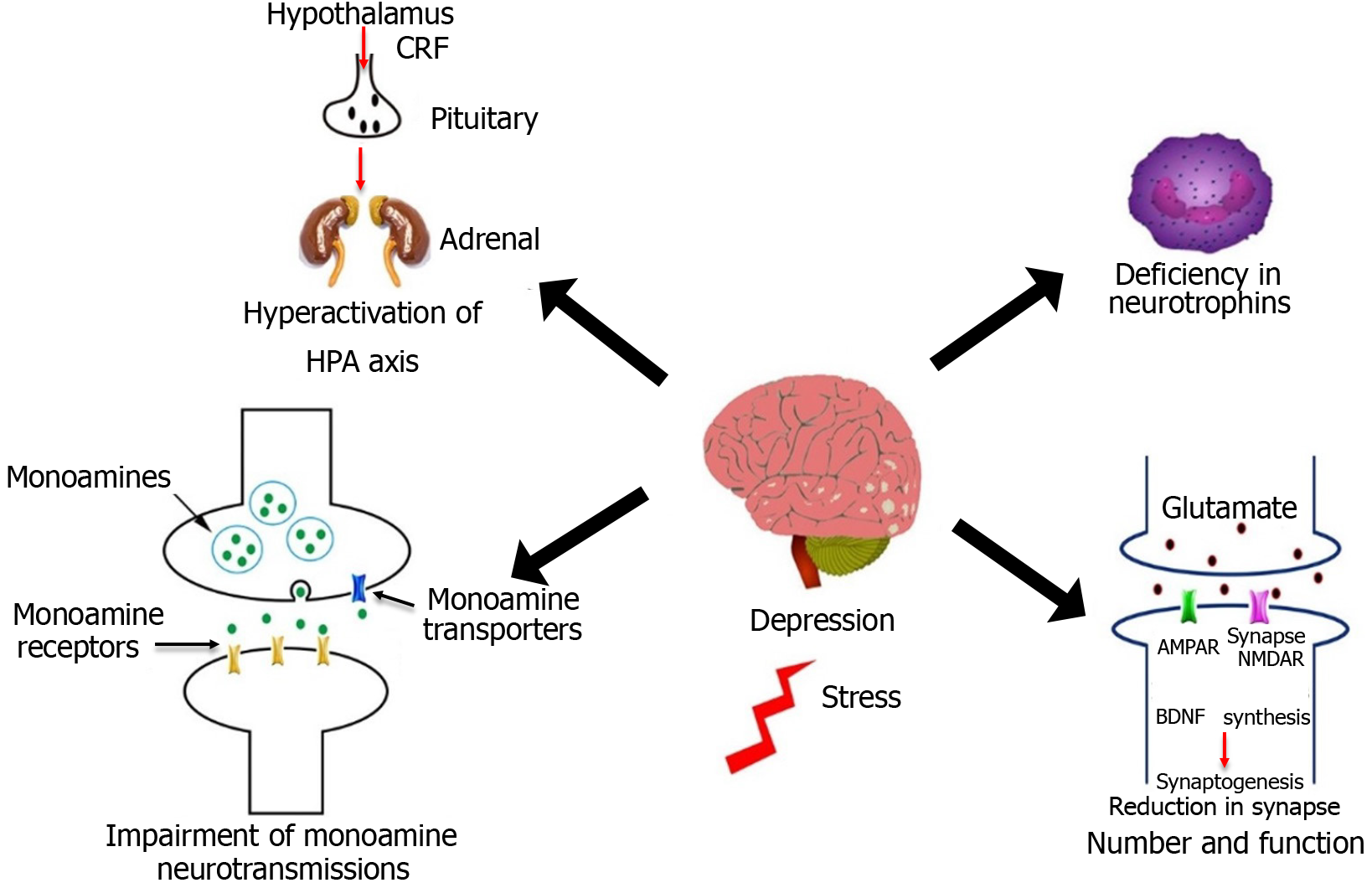Copyright
©The Author(s) 2024.
World J Psychiatry. May 19, 2024; 14(5): 607-623
Published online May 19, 2024. doi: 10.5498/wjp.v14.i5.607
Published online May 19, 2024. doi: 10.5498/wjp.v14.i5.607
Figure 1 Acupuncture therapy for depression often involves targeting different acupoints.
A: Stimulating Baihui is thought to disperse stagnant Qi and clear any emotional blockages; B: Stimulation of Yintang is believed to promote the free flow of Qi and blood; C: Stimulation of Shenmen is thought to regulate the Heart's Qi and blood circulation; D: Stimulation of Neiguan is thought to regulate the Pericardium's energy, helping to soothe emotional distress; E: Zusanli is associated with the Stomach meridian and is believed to influence physical and emotional well-being.
Figure 2 Combine pathways-induced depression.
Changes in different parts of the central nervous system (CNS) cause depression. Herbal antidepressants may work on the following pathophysiological systems in the CNS: Neurotrophins, monoamine, the hypothalamic-pituitary-adrenal (HPA) axis, neurotransmissions, and the amount and function of synapses. When these processes don't work right, there are more cases of depression. In the same way, efforts to find antidepressants that work on these systems have led to many pharmaceutical targets, such as improving monoaminergic transmissions, dehyperactivating the HPA axis, raising the expression of neurotrophic factors, and improving glutamatergic transmissions. CNS: Central nervous system; CRGF: Colorectal Carcinoma-Related Growth Factor; HPA: Hypothalamic-pituitary-adrenal. Citation: Li C, Huang J, Cheng YC, Zhang YW. Traditional Chinese Medicine in Depression Treatment: From Molecules to Systems. Front Pharmacol 2020; 11: 586. Copyright © 2019 Frontiers Media S.A. All rights reserved (Supplementary material)[113].
- Citation: Yang Y, Chen YK, Xie MZ. Exploring the transformative impact of traditional Chinese medicine on depression: Insights from animal models. World J Psychiatry 2024; 14(5): 607-623
- URL: https://www.wjgnet.com/2220-3206/full/v14/i5/607.htm
- DOI: https://dx.doi.org/10.5498/wjp.v14.i5.607














